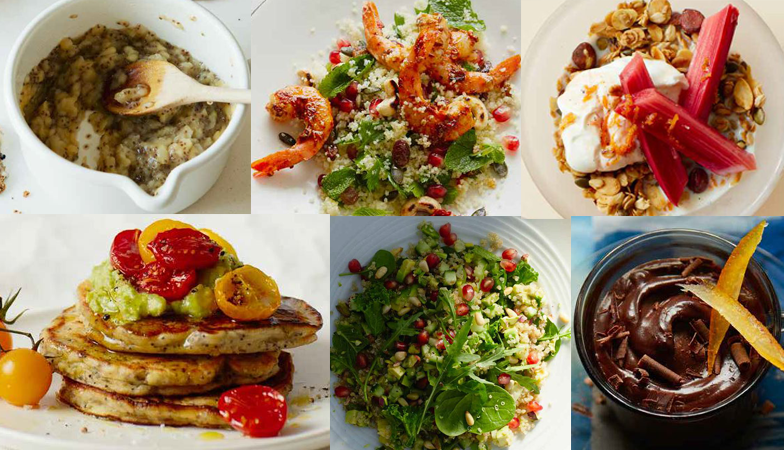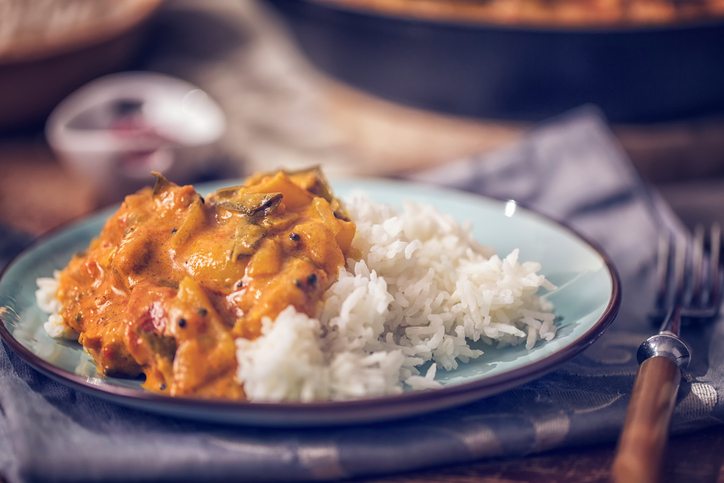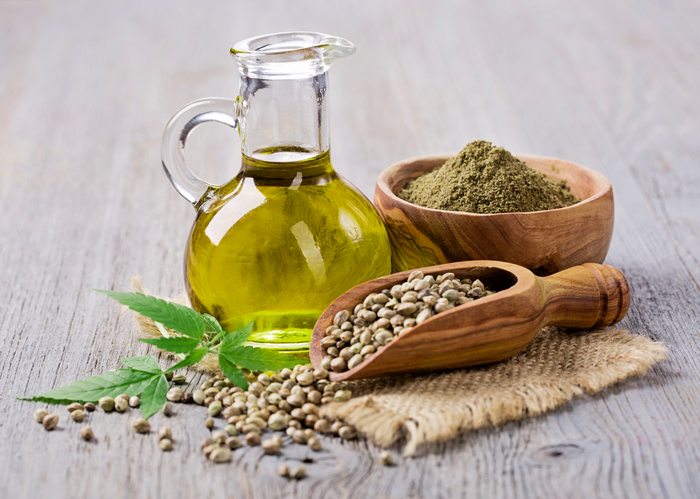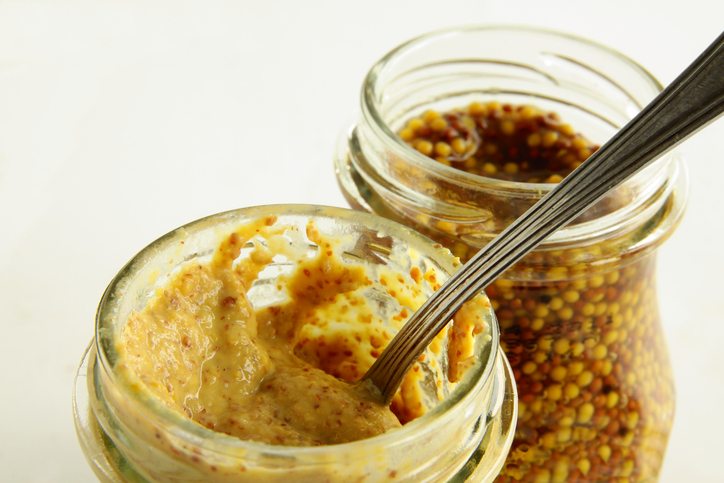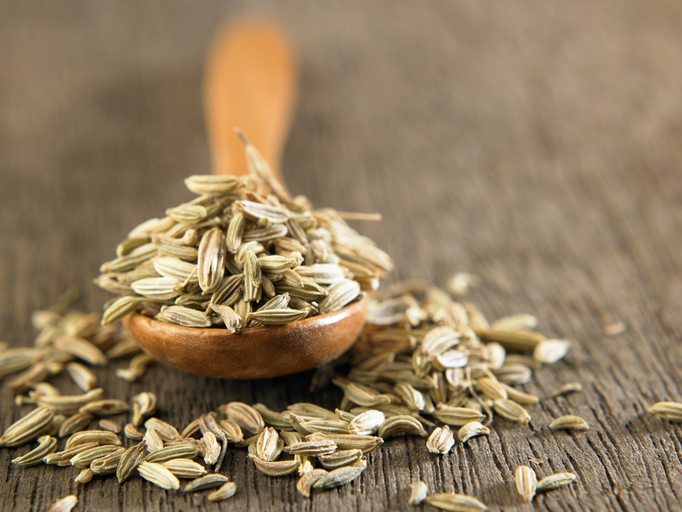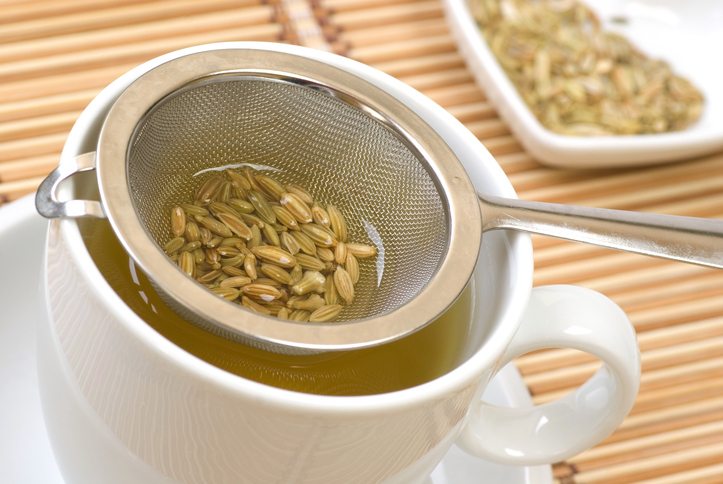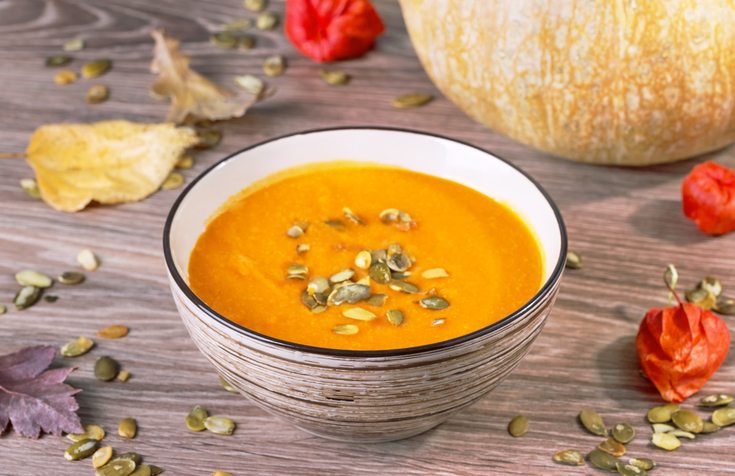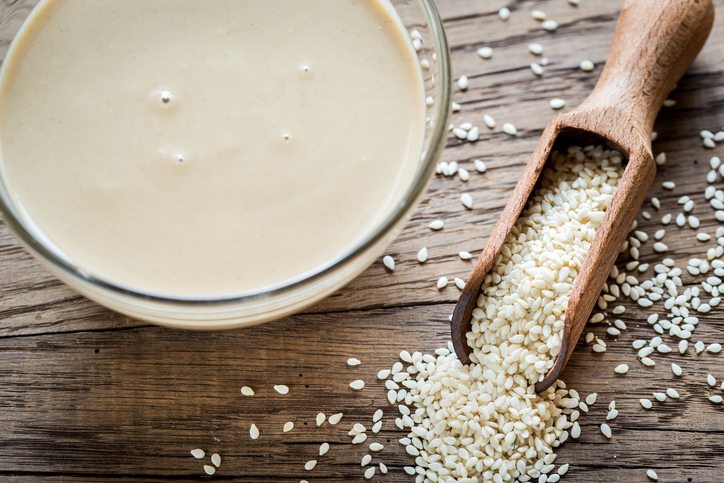For this week’s How To Cook Healthy for Beginners, Vanessa Chalmers explores new book Amazing Edible Seeds and reveals 13 that can boost your health in versatile recipes
When we embark on a new diet, whether that be weight loss, vegan, gluten-free, or whatever other trend is being thrown around, our first step is often to look at what we need to eliminate. Banish the bread, ditch the digestives and cast out the carbs. But what about the healthy things we can add to our diet? Seeds for example, are pockets of nutritional powerhouses that can improve digestion, lower blood cholesterol or boost energy. A little sprinkle here and there in our everyday meals could be the answer to some of our most common ailments.
They can be added to a huge range of dishes ranging from irresistible snacks, dips, raw dishes, salads, brunches, drinks and breakfasts.
In my How To Cook Healthy for Beginners column this week, I have explored a new book, Amazing Edible Seeds, which demonstrates the huge potential of tiny seeds and their versatility. The book explains how seeds have been developing our planet for hundreds if not thousands of years, surviving generations of people, being used in foods, medicines and tonics. Some seeds have literally been considered worth their weight in gold in previous centuries. They are the ‘life force’ of every plant, flower, herb, fruit, vegetable and wholegrain we eat, are the building blocks of all vegetable protein.
Many types of seed can be grown in your own home, on the windowsill, or in the smallest of patios, allotments or gardens. But supermarkets sell most of them, and if not, they will undoubtedly be stored in the nearest health food store. Here’s our pick of the healthiest.
Best for eye health: Coriander
Try it: For flavouring Indian food
Coriander is among the world’s oldest spices – it is even mentioned in the Bible. You may be familiar with coriander as a leaf. As a seed, they can be crushed, and lightly roasted or toasted, used in curries (and other Asian-style dishes), and to flavour meats and fish for BBQ, salads, dressings and sauces and marinades.
Nutrients: Coriander has Iron, copper, calcium, magnesium, manganese, zinc, oleic and palmitic essential fats, as well as omega-6, high percentage vitamin C and Vitamin K.
Benefits: Coriander seeds make a valuable contribution to maintaining a healthy immune system. They contain anti-bacterial and anti-microbial compounds, which keep the digestive tract healthy and fight salmonella, listeria, e.coli and other food-borne illnesses. The vitamin K is necessary for natural blood clotting in the body’s healing processes, and antioxidant carotenoids, including alpha- and beta-carotene, are essential for healthy cells in the retina of our eyes. It can improve bone and ligament health, and the powerful antioxidants help to lower LDL cholesterol (low-density lipo-protein, or ‘bad’ cholesterol). The zinc is also good for sperm health.
MORE: How To Cook Healthy For Beginners: The easiest chicken curry recipe EVER
Best for vegetarians: Hemp
Try it: In a pressed oil over salads
This small, greenish white seed is mainly uses for its oil in dressings and marinades, and also as sprouted seeds for salads, and sprinkles for soups. It’s now also used in grain-based dishes (barley, wild and black rices).
The seed contains cannabinoids, which is a nutrient also found in cannabis
Nutrients: As little at two heaped tablespoons contain a staggering 10 grams of protein and 20 known amino acids, making them an important food for vegetarians (it is the base for a lot of protein powders on the market). The seed contains cannabinoids, (or CBD), which is a nutrient also found in cannabis; B vitamins, niacin, thiamine and riboflavin, as well as Essential fatty acids, omega -3 and -6. Although the plant from which hemp seeds are gathered is called Cannabis sativa, it is not the same plant as marijuana, which is another member of the same species.
Benefits: Hemp is good for blood sugar control, reducing inflammation, lowering blood pressure, hormone-regulating, high protein assimilation for growth, healing and repair. It has potent anti-inflammatory, anti-convulsive and pain-relieving effects, and can help with the production of energy at a cellular level.
MORE: 10 coconut oil recipes ready in less than 30 minutes
Best for asthma: Mustard
Try it: Add to natural yoghurt with some chilli flakes and curry leaves for a soothing raita to serve with curries.
These seeds have differing levels of spice according to colour, so may be white (pale yellow), brown or black. The black seeds are the most pungent and fiery of all, followed by the brown (used in making Dijon mustard), while the white ones (used in American mustard or blended with brown for English mustard) are relatively mild. Roasted, or dry-toasted and ground finely to a powder, added to other spices to create sprinkles and flavourings for meat, fish, some grain dishes and vegetables. As a powder, they can also be added to dressings and marinades for poultry, meat and fish.
Nutrients: Mustard seed is especially rich in selenium, a mineral known for its immune supporting properties. It also contains magnesium, manganese, phosphorous, copper, Vitamin B1 (Thiamine) and fibre.
Benefits: These hormone balancing seeds can boost immunity, relieve symptoms of menopause, improve sleep, asthma and inflammation relating to rheumatoid arthritis.
Best for chest infections: Cardamom
Try it: Warm milk and puddings
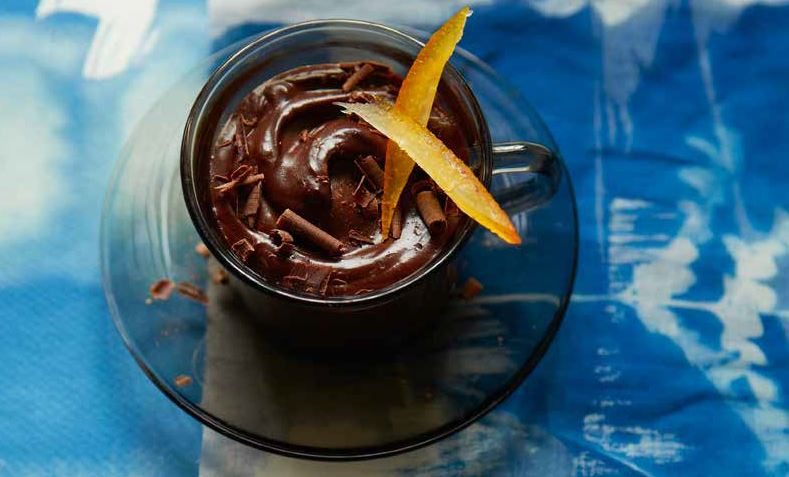
These tiny seeds are arranged in vertical rows (sometimes known as arils) found in the cardamom fruit. The fruit and its seeds are often eaten whole in India, but added to dishes for their pungent flavour, and then removed once cooked in Western cooking. They work well in warm milk and milk puddings, rice dishes both sweet and savoury. Use them as a ‘pick-me-up’ when you’re feeling run down or fatigued, or to treat urinary tract infections. They can even be chewed after a meal to sweeten the breath and aid digestion.
Cardamom has a warming effect on the body
Nutrients: Calcium, magnesium, potassium, anti-oxidants, vitamins B & C.
Benefits: Cardamom has a warming effect on the body – invigorating and therapeutic. Ayurvedic medical practitioners use the seeds and their oil to calm the mind, relieve tension, and improve memory and concentration. The seed, being anti-spasmodic and anti-inflammatory, is immune-supportive, can reduce phlegm in the bronchial tract (nose, throat and chest), helping to clear chest infections, and calm digestion by settling the stomach. They are also anti-inflammatory. Is there anything this seed can’t help with?
MORE: Got flu, stress or skin conditions? Top GP reveals what to eat for 12 common ailments
Best for immune system boosting: Pomegranate
Try it: in stews and tagines
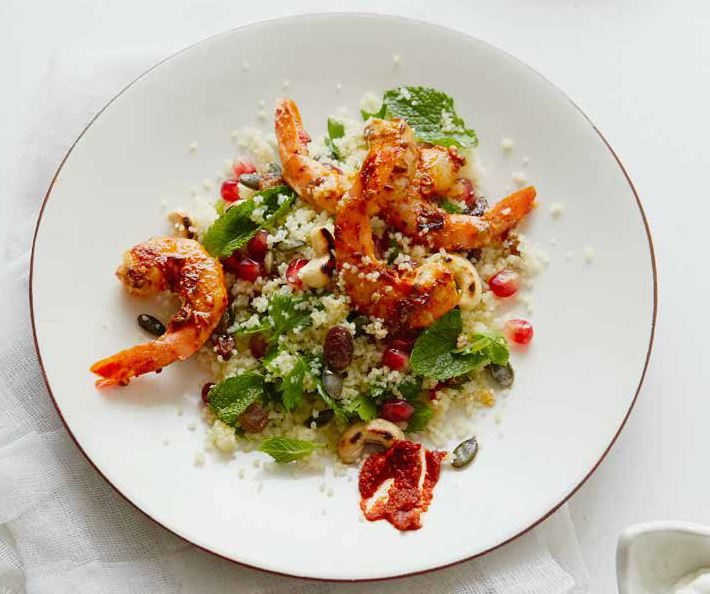
Pomegranates add a sweet, juicy flavour and crunchy texture to breakfast bowls and pancakes, juices, smoothies and salads, and are often decoration for main dishes.
Add them to tagines and stews, sprinkle over salads, or simply scatter over Greek yoghurt
Pomegranates are a staple of Middle Eastern food, especially traditional Persian dishes such as fesenjan (stewed chicken and walnuts in pomegranate juice). Add them to tagines and stews – they go well with pork, duck and chicken. Sprinkle them over salads, cooked grains or thick vegetable soups, stir into a fresh tomato salsa with coriander and chilli or simply scatter some over a bowl of thick Greek yoghurt with a drizzle of honey, some toasted nuts and a pinch of ground cinnamon.
Nutrients: Protein, fibre, essential fats, beta-carotene, flavanols and polyphenols, Vitamin C and punicalagins (all of which are potent anti-oxidants, essential for mopping up debris in the body caused by natural metabolic functions), Vitamin K, (which is essential for blood clotting).
Benefits: Pomegranates are great for a number of things, such as weight loss, lowering blood pressure, prevention of Alzheimers and other brain-related diseases as well as prostate and breast cancers. They are a potent antioxidant for the immune system, antibacterial, anti-inflammatory, and balance good to bad cholesterol ratios.
Best for a healthy gut: Cumin
Try it: Added to any curry or spicy tagine
Often confused with fennel seeds, cumin is far more spicy, and is essential in many Indian and Persian dishes, both vegetarian and animal based, as well as rice, beverages and sweet condiments. The warm flavour of cumin with its peppery tones enhances many classic Middle Eastern, Moroccan, Indian and Mexican dishes. In Mexico, they are often mixed with chilli powder or flakes as a coating for chicken. You can make the seeds into a soothing tea, sprinkle them on rice, quinoa and grilled vegetables, or add them to stews and spicy tagines with chicken or lamb and dried fruits.
Add them to stews and spicy tagines with chicken or lamb and dried fruits
Nutrients: It is packed with antioxidants, vitamins A,C, & E, (all of which work synergistically together), zinc and selenium, as well as potassium, calcium, magnesium and manganese.
Benefits: Cumin is beneficial for bone health, eye health, blood pressure. It is cardiovascular and digestion supporting, reducing flatulence.
Best for digestion: Fennel
Try it: In tea to settle the stomach
Harvested from the herbaceous fennel plant when their seed heads turn light brown, and are oblong shaped, 3-4mm long, with fine vertical stripes over their surface. To enhance their fragrance and flavour, fennel seeds are generally ground just before preparing dishes, or whole seeds gently toasted.
They can be used as a savoury spice, as a condiment or flavouring base. They are used widely in fish and vegetable dishes, and in cheese spreads, as well as for flavouring breads and cakes. In some countries, such as India, they are often chewed as a natural digestive and breath freshener after meals.
Fennel is a traditional remedy for flatulence, bloating and indigestion
Nutrients: Fennel is a rich source of dietary fibre and abundant in antioxidants. Its minerals include: copper, iron, calcium, potassium, manganese, selenium, zinc and magnesium. Vitamins A, C and E work synergistically as the primary antioxidant vitamins along with B-vitamins 1, 2, 3 and 6.
Benefits: Fennel is a remedy for flatulence, bloating and indigestion in traditional medicines, and has been found to increase breast milk production in nursing mothers. The powerful antioxidant and anti-inflammatory seed helps lower LDL (bad) cholesterol levels.
MORE: 11 foods to help bloating already in your kitchen
Best for kidney function: Pumpkin
Try it: In breakfasts such as granola and porrdige
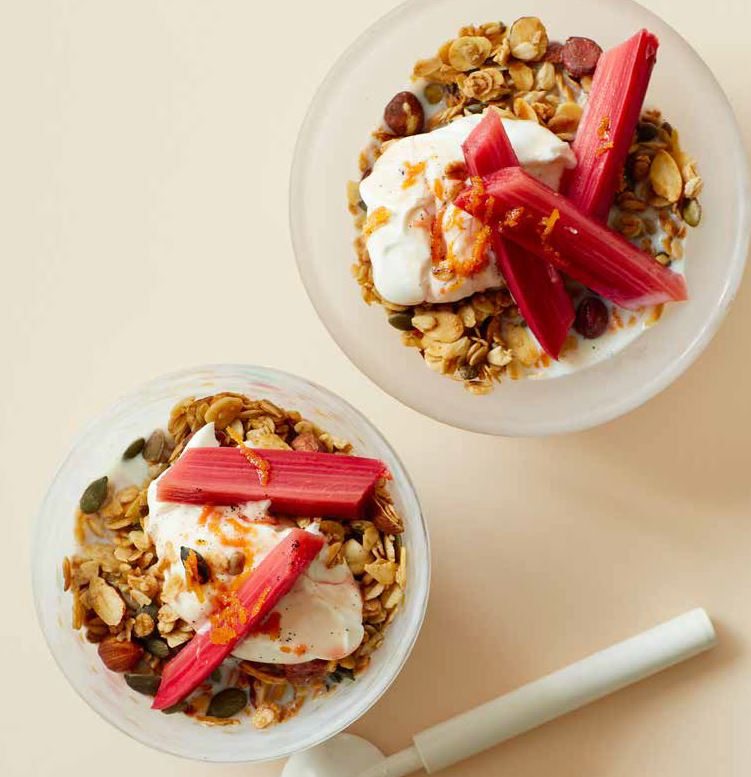
These flat, dark green seeds can be used to garnish porridge, yoghurt, soups, pasta bakes, stir-fries and salads. Mix them into homemade muesli, granola and breakfast bars, bread or cookie dough, flapjacks, sweet and savoury muffins and pancake batters. Grind and add them to citrusy salad dressings or even veggie burgers. Add them to homemade trail mixes with dried fruit, toasted nuts and banana chips. When ground, pumpkin seeds make a great coating for meats and poultry.
Pumpkin seeds can be used to garnish yoghurt, soups and salads
Nutrients: Manganese, phosphorous, copper, iron, magnesium, zinc, vitamin K and B-complex are all found in pumpkin seeds, which are also high in protein.
Benefits: Their antioxidant and antimicrobial properties support gut health, prostate health, kidney function and the regulation of insulin production.
Best for energy: Sunflower
Try it: in smoothies and soups
Sunflower seeds, grey-green in colour and found in the sunflower itself, can be sprouted to add additional protein content and enzymes to salads, soups and juices/smoothies, or roasted/toasted for an increased nutty flavour to add to granola, breakfast cereals, or vegan bites and bars. They work well blended into dips and spreads such as pesto.
Nutrients: Sunflower seeds are one of the highest vegetarian sources of protein, fibre and polyunsaturated fats, making the oil second in popularity only to olive oil. Thiamin (Vit. B1), Niacin, (Vit B3), Pyridoxine (Vit B6), Folate, Iron, Zinc, Phosphorous, copper, Potassium, Selenium, Vitamin E, Magnesium and Manganese. They are quite high in energy, as their fat content (polyunsaturated) is over 50 per cent.
Benefits: Sunflower seeds help to release energy from the food you eat by contributing to normal energy-yielding metabolism. They are anti-inflammatory and beneficial to cardiovascular system, by helping to lower damaging LDL-cholesterol. They can calm nerves, muscles and blood vessels, supports liver detoxification, and are considered potentially cancer-preventative. The nutrients are important for women during pregnancy for the development of healthy babies.
MORE: Want more energy? Eat to support your thyroid
Best for relieving constipation: Linseed
Try it: Baking pancakes and waffles
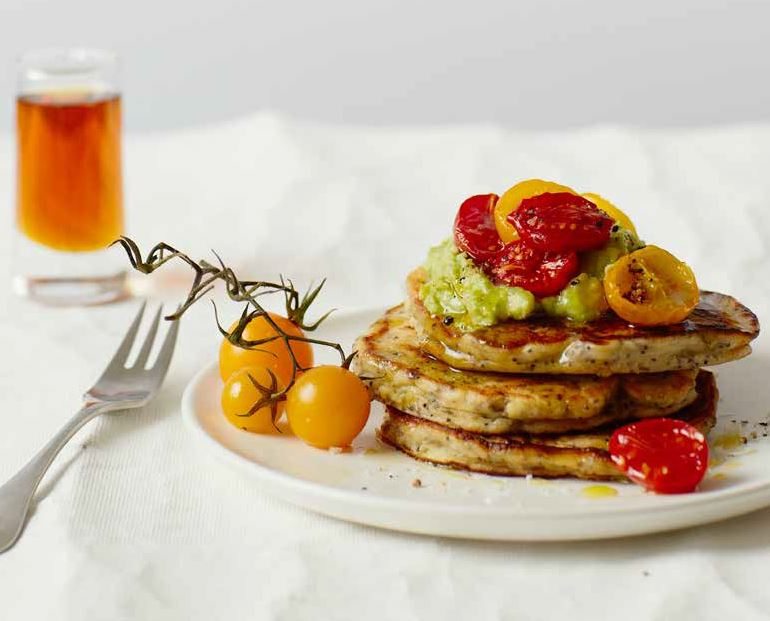
Linseed comes from the flax plant, and are also known as flaxseed. In raw form, flaxseeds range from yellow to reddish-brown in colour. Stir into warm cereals or blend into smoothies. Ground flaxseed can also be used in pancakes or waffles where it can be substituted for a quarter of the flour.
Ground linseed can be used as a substitute for flour
Ground or roasted linseed can be soaked in water to release a gum (similar to xanthan gum), which can be used in gluten-free baking. The oil can be whisked with other ingredients in salad dressings to add a nutty flavour, stirred into cooked rice or drizzled over griddled and roasted vegetables. However, never use it for cooking as it can be rendered unstable and burn at relatively low temperatures.
Nutrients: Linseeds have one of the highest beneficial Omega-3:6 essential fatty acid ratios of all seeds, as well as containing copper, manganese, magnesium, phosphorous, selenium, B-complex vitamins and fibre.
Benefits: Due to their high fibre content, they have long been recognised as a natural remedy for relieving constipation. The seeds can be pressed to extract a rich, buttery-tasting oil that can be used as a laxative. They are beneficial for cardiovascular and digestive health, as well as providing antioxidant protection. They can ease PMS and post-menopausal symptoms, and balance hormonal health generally.
MORE: 10 healthy pancake recipes to try tonight
Best for a gluten free diet: Quinoa
Try it: As a substitute for rice or to bulk up salads
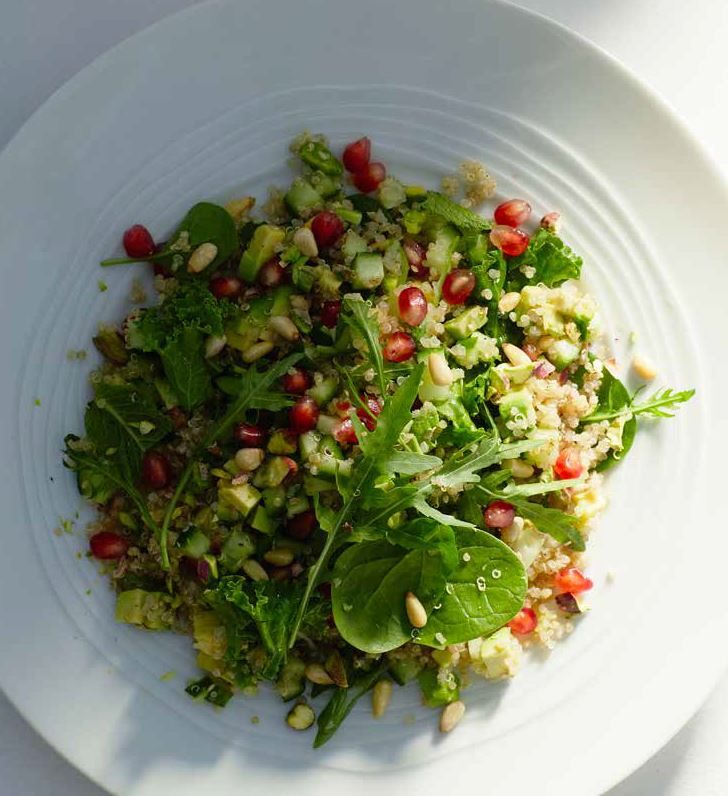
Quinoa can be white, red or black in colour. When cooked, it has a slightly bitter, nutty flavour, a fluffy texture with a little crunch and translucent appearance, and it bulks up to four times its original volume. It is prepared in a similar way to rice and should be rinsed thoroughly before cooking.
It tastes delicious simply served hot with olive oil, lemon juice and black pepper
They are excellent in a gluten-free diet, as they can be used in baked goods, as a pasta substitute, chilled in salads, or served as a breakfast porridge alternative with fruit and cinnamon. You can add it to veggie burger mixes, or serve it with stews, grilled fish and shrimp, or make it into a Middle Eastern pilaf, tabbouleh or Indian-style pilau. It even tastes delicious just served hot and dressed simply with some olive oil and lemon or lime juice with a grinding of black pepper and sea salt. Stir in a few chopped herbs for extra flavour, if wished.
Nutrients: Quinoa is a good source of protein, good for a vegan or vegetarian diet, and contains all the essential amino acids. It is gluten free and easy to digest, very low in fat and contains vitamins A, B, C and E as well as potassium, phosphorus, manganese, iron, zinc, calcium and magnesium.
Benfits: There is a low allergen risk with quinoa, and the seeds are anti-inflammatory, antioxidant and energy producing.
MORE: Meat free Monday recipe: Mango, avocado and quinoa salad with a lime dressing
Best for lowering cholesterol: Sesame
Try it: Made into tahini or spreads
Sesame seed are tiny, flat, oval seeds with a nutty taste and delicate crunch. They may be found in a variety of colours including white, yellow, black and red. The seeds know no boundaries and are so versatile that they can be used in sprinklings, toppings, garnishes and decorations. They are good in bread, muffins, biscuit mixes, burger buns, cakes, crackers, sushi and salads, as well as being used for salad dressings and many Asian-inspired dishes.
Sesame seeds are rich in selenium that supports the sex glands
It is essential for making tahini, which you can buy in jars in most supermarkets, or make it yourself by blitzing toasted sesame seeds and oil in a food processor to a smooth, thick pouring consistency. Store in a sealed jar in the fridge for several months.
Sesame oil is used in many Chinese, Japanese, Korean, Vietnamese and Indian dishes. Fragrant and aromatic, it is usually sprinkled over food just before serving or used in dressings for cooked vegetables.
Nutrients: Sesame seeds are high in healthy monounsaturated fat (50 per cent), which helps to lower LDL ‘bad’ blood cholesterol. Copper, manganese, calcium, magnesium, phosphorous, iron, zinc, molybdenum, selenium, B-complex vitamins and fibre.
Benefits: Sesame seeds are particularly rich in selenium, an important mineral that helps support the immune system, sex glands and optimal functioning of the thyroid gland, which regulates metabolism, heat and weight levels in the body. Many health claims are made for these remarkable little seeds, and they are used to treat and relieve a range of conditions from diabetes and high blood pressure to gingivitis. Sesame supports bone health, prevents osteoporosis, and is essential for vascular and respiratory health. It can lower LDL (bad) cholesterol, and is vital for reducing migraine and PMS symptoms, too.
Best for preventing heart disease: Chia
Try it: Soak them for at least 15 minutes in nut milk or water to make a pudding
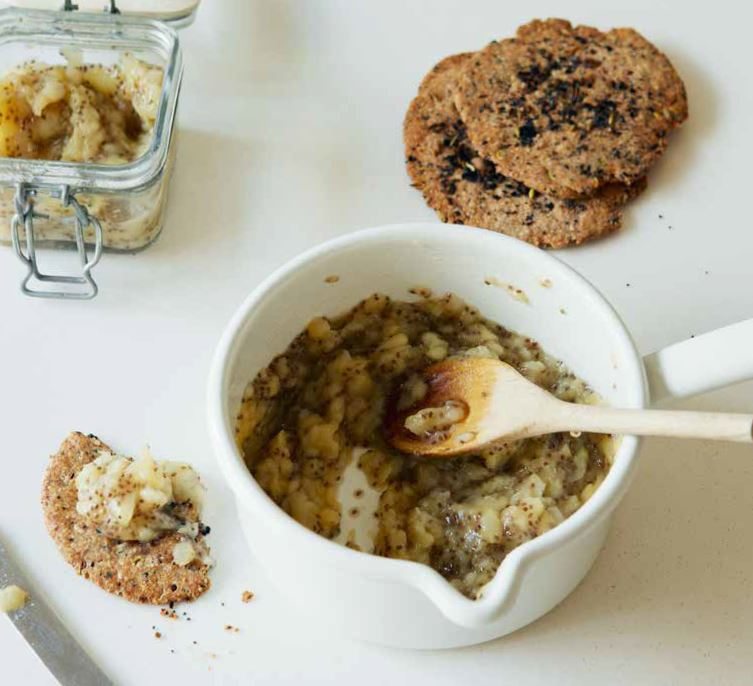
The raw seeds can be sprinkled on cereals, yoghurt and salads or added to bread, cakes, energy bars, granola, oatmeal and dips. Use them whole or ground in smoothies, energy drinks and juices, a source of high protein for vegans, or make them into a delicious gelatinous porridge as an alternative to oat-based porridge.
Chia seeds are regarded as a ‘superfood’
What makes them special is their hydrophilicity – their ability to absorb water: they swell up to 12 times their original size when soaked, acquiring an unusual gel-like consistency. They have a rather bland but slightly nutty flavour, and they can be pressed to extract their oil.
Nutrients: Chia seeds are a great source of plant protein, with all the essential amino acids, and is one of the highest vegetable sources of fibre, omega-3.-6,-9, calcium, magnesium, iron, zinc and folic acid.
Benefits: Chia seeds, being high in fibre, are great for digestion. They support bone health, cognitive function and brain health, and boost energy and vitality. The seeds are regarded as a ‘superfood’ with their ability to help lower cholesterol and reduce the risk of heart disease.
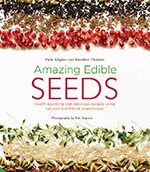
, by Vicki Edgson and Heather Thomas, is £16.59
READ MORE
How To Cook Healthy For Beginners: 6 easy smoothies and juices
How To Cook Healthy For Beginners: Southern-Style Quinoa Coated Chicken
How To Cook Healthy For Beginners: Paneer and cauliflower bowl recipe
How To Cook Healthy For Beginners: Herbed turkey meatballs with courgetti pomodoro
10 best healthy cookbooks for 2017
Like this article? Sign up to our newsletter to get more articles like this delivered straight to your inbox.



